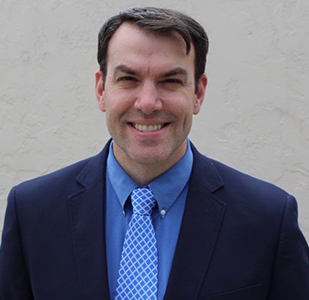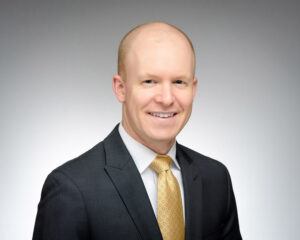Washington University in St. Louis: Experts Suggest Preventing Another ‘Jan. 6’ Starts with Altering Election Certification Process
The 2024 presidential election may be a rematch between President Joe Biden and former President Donald Trump, but preventing a repeat of Jan. 6, 2021 — when false claims of a stolen election promoted by Donald Trump and his allies led to an insurrection at the U.S. Capitol —will be top of mind this election year.
A reecent poll from The Associated Press-NORC Center for Public Affairs Research confirmed that many Americans — especially Republicans — are skeptical that their votes will be counted correctly. The lack of confidence in elections is a real threat to our democracy, experts say.

A new institutional reform proposed by Daniel M. Butler, a professor of political science in Arts & Sciences at Washington University in St. Louis, and Jeffrey J. Harden, the Andrew J. McKenna Family associate professor of political science at the University of Notre Dame, would change the way elections are certified to help minimize politics from influencing the process.
Their proposed solution — published March 20 in the Annals of the American Academy of Political and Social Science — would grant independent, nonpartisan commissions the authority to certify elections, rather than partisan elected officials.
“Convincing voters — and some politicians — that the 2020 election was free and fair is simple in theory, but quite difficult in practice,” Butler said. “Researchers have found that correcting misinformation about politics yields limited success and may even cause voters to become more entrenched in their original beliefs.
“Because of this, our recommendation for protecting elections does not center on correcting misinformation or detailing the empirical case for a fair process. Instead, we argue that an institutional reform is needed to separate the electoral process from partisan elected officials’ control.”
Butler and Harden said this solution would insulate the certification process from the demands that voters might make on politicians to engage in attempts to overturn elections — as was the case in the 2020 election — and would provide political cover for legislators to maintain support without acting against the electoral process.
According to the authors, the proposed commission would be similar to the nonpartisan redistricting commissions that various states have introduced to remove partisan influence from that process and to ensure fair representation of all citizens.
Republicans and Democrats agree

Importantly, their research shows broad support among all segments of the public for empowering nonpartisan commissions to certify elections. In a survey of 1,013 voters, more than 70% of both Democrats and Republicans supported the use of nonpartisan commissions in the certification process. They also found similar levels of support between respondents who believed the 2020 election was free and fair and those who thought the election was stolen from Trump.
The authors said the proposed solution carefully balances protecting the integrity of the electoral process and freedom of speech. The proposal does not prevent political elites from spreading false claims, but it protects the political process if politicians do so.
How elected officials stand to benefit
Following the 2020 election, Trump fervently denied the election results and pressed state officials to overturn them. But he didn’t act alone. Many Republican lawmakers also publicly supported his claims and worked to subvert the results, even though some privately expressed doubt in any wrongdoing. Why?
“These politicians were facing pressure from voters in their primary electorate if they weren’t taking actions,” Butler said. “We believe that elected officials from both parties can stand to benefit from this reform because it provides them insulation from various political pressures.”
To test this theory, Butler and Harden designed a survey experiment to evaluate how this proposed commission would affect voters’ evaluations of elected officials.
From a nationally representative sample of American voters, Butler and Harden narrowed their sample to the 314 respondents who either indicated that “The 2020 election was stolen from Trump” or “We do not yet know who truly won the election; more investigations are needed.”
Respondents read a short vignette, like a news story, describing the outcome of a fictional election. While the election was always certified in the story, they varied who had the power to certify the election — the secretary of state or a nonpartisan commission — and what the secretary of state said about the election — “I think the election was free and fair and the results should be certified” or “I think the election was stolen and the results should not be certified.” Based on the vignette they read, respondents were asked how much they would approve of the job the secretary of state was doing.
‘We view this proposal as a seat belt for democracy. Even if it leads some politicians to act more recklessly, the beneficial protection it provides to democracy far outweighs that cost.’
Daniel Butler
Given that voters want politicians who share their positions, the researchers were not surprised that the survey respondents who believed the 2020 election was stolen were less likely to approve of the fictional secretary of state if he said the election was free and fair. They also found that voters would punish politicians for certifying an election if they previously said it was stolen. However, politicians did not receive similar backlash when the election was certified by an independent commission.
The authors acknowledged that giving a nonpartisan commission certification authority may lead more politicians to say that an election was stolen because they can blame the independent commission without overturning the election themselves. However, they argued that the benefits of using an independent commission outweigh the potential cost because when politicians have incentives to attack free and fair election results, they also will have incentives to act to overturn the election.
“We view this proposal as a seat belt for democracy. Even if it leads some politicians to act more recklessly, the beneficial protection it provides to democracy far outweighs that cost,” Butler said.
2020 election provided blueprint for future election troubles
The 2020 election provided a blueprint for casting doubt on the electoral process for losing parties in the future, the authors said. In fact, following the 2020 election, many Republican-controlled state legislatures sought to expand their own power over elections, even diminishing the roles of secretaries of state. That is exactly why the proposed reform is needed, the authors said.
But implementing a change like this would have to be done state by state.
“In states that allow ballot initiatives, this reform could be implemented through citizens’ efforts rather than the legislature. This is how several nonpartisan redistricting commissions have been introduced in various states and is probably the most likely way to implement this policy,” Harden said.
To be truly independent and nonpartisan, the authors say an election certification commission must be chosen by neutral parties and given specific instructions for procedures, accountability and transparency. A few states currently empower bipartisan commissions to administer elections, but the authors say the appointees are still partisans and the relative balance can become partisan in nature.
While bipartisan support for ballot initiatives may seem unlikely, Butler stressed that elected officials from both parties can benefit from this reform because it provides them insulation from political pressures.
“Elected officials are understandably cautious about changing anything that affects elections because they won under the current system,” Butler said. “This is why the ballot initiative is the most likely means for implementing this change. However, because this reform benefits legislators, organizations like the National Conference of State Legislatures that support legislators could mobilize support among them.”

